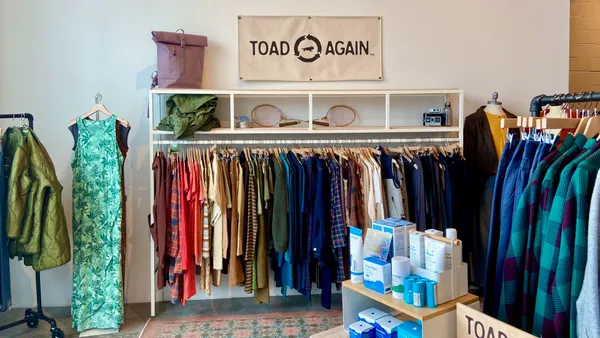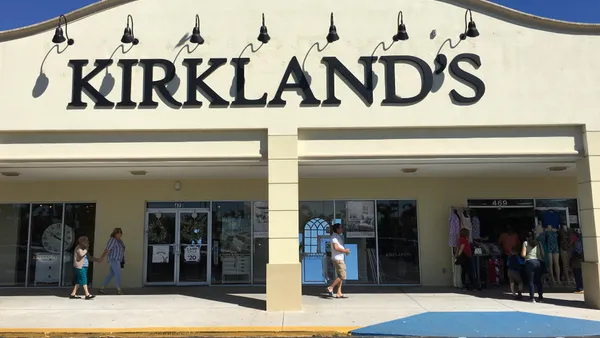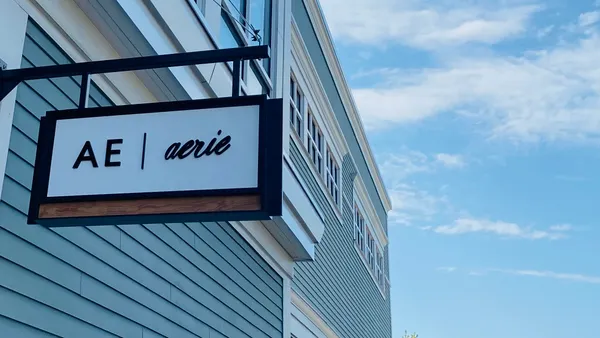Dive Brief:
-
Rue21, Inc. late Monday evening announced it has filed for Chapter 11 bankruptcy in the Bankruptcy Court for the Western District of Pennsylvania and entered into agreements with some of its lenders to reduce its debt and provide additional capital in support of its restructuring, according to a company press release.
-
The teen apparel retailer, which expects to continue normal business operations throughout the process, has hired Kirkland & Ellis LLP as its legal advisor, Rothschild Inc. as its investment banker and financial advisor, and Berkeley Research Group, LLC as its restructuring advisor.
-
Last month, the company began shuttering some 400 stores nationwide, about a third of its fleet, calling it a "difficult but necessary decision," in a Facebook post. That leaves the retailer with about 800 remaining stores in the U.S., as well as its e-commerce website.
Dive Insight:
Rue21 has been in the midst of a turnaround since an executive suite shake-up instituted in October by private equity owner Apax Partners shortly after credit ratings firm Fitch Ratings warned Rue21 could slip down the slope to bankruptcy. The company replaced General Merchandise Manager Kim Reynolds as well as CEO Bob Fisch, who together had run the company for some 15 years. Keith McDonough, who had been CFO for 13 years, has since served as interim CEO while the board of directors searches for a permanent chief executive.
Debtwire reported in early April that the company has signaled that same-store sales in already revamped stores have risen 6% with wider gross margins and lower inventory levels. But Rue21 appears to be the latest mall-based apparel retailer scrambling to deal with lower foot traffic to malls. "Way too much leverage and declining mall traffic trends are just the death knell," Debtwire Associate Editor Reshmi Basu told Retail Dive earlier this year, calling Rue21 a "poster child" for mall-based apparel retail.
A blunt Fitch Ratings report last fall singled out Rue21 as one of seven retailers with tenuous futures. "The lack of proprietary products in many categories leaves retailers vulnerable to permanent traffic decline resulting from the rise of competitors (for example, discounters and online-only players)," Fitch said, pointing out that mall-based apparel brands in particular can quickly become irrelevant as consumer sentiment changes. "The outcome in either case is that the bankrupt retailer has lost its place in the market and thus has limited value as a going concern."
In January, the retailer appeared in another Fitch report citing retailers most likely to default on their loans. Many lenders think the company can't take on any more debt, according to Basu. Factor firms are getting nervous and not approving shipments, though Debtwire noted in a recent report that management has said it continues to have factor support.
In recent years, Rue21 expanded its store footprint despite having negative same-store sales. "That can be pretty lethal," Basu said. However, she added there is a shred of light at the end of the tunnel for struggling mall-based retailers in renegotiating leases because landlords are under the gun as retailers shutter underperforming stores (or all stores).
To turn around its fortunes, in addition to the restructuring announced Monday, the retailer has said it plans to revamp its girls' in-store experience in alignment with the girls' merchandising transformation led by Chief Merchandising Officer Nina Barjesteh, who joined Rue21 from Target after the abrupt departure of Reynolds in October.
Already this year we've seen several retailers — including fellow teen apparel retailer Wet Seal and women's apparel retailer The Limited — succumb to bankruptcy. The number of retailers who have filed for bankruptcy this year — 10 including Rue21 at last count at the end of March — has already equaled the total number of retail bankruptcies for 2016 and is on pace to for the highest year on record since the Great Recession.














